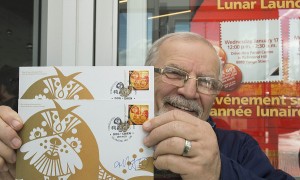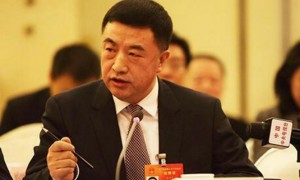1911年,温斯顿•丘吉尔(Winston Churchill)下令英国皇家海军将石油用作主要舰船燃料,此举开启了油价上升的进程。而本周,因石油和其它大宗商品价格突然逆转而备受打击的投资者最好能记住几十年后丘吉尔在二战转折点后所说的一句名言:这不是结束,这甚至并非结束的序幕。但或许,序幕即将结束。
Commodities markets, slammed in late 2008, resumed their bull run in early 2009. Economic recovery, led by China, was a major factor, particularly for oil and copper. But loose monetary policy, which aided recovery and pushed investment dollars toward hard assets, has also helped, particularly for precious metals.
DPA/Zuma Press本周银价已跌去了近25%,白银是新近加入跌价大军的大宗商品。在2008年遭受重创的大宗商品市场在2009年初进入了牛市。中国领头的此轮经济复苏是促成牛市的一个主要因素,尤其是对石油和铜来说。但尤其是对于贵金属来说,宽松的货币政策也功不可没。货币政策的宽松促进了复苏,也令投资美元涌向了硬资产。
Two years into this run, the balance of risk for where commodities prices go from here is turning negative.
市场进入此轮牛市已长达两年,以当前的价格水平为起点,未来大宗商品价格走低的风险在加大。
This week, silver, a late-comer to the party, has dropped almost a quarter. Crude oil slumped as much as 7.7% Thursday morning despite nominally bullish drops in U.S. inventories announced the day before. Instead, investors are probably focusing on weak gasoline demand.
本周银价已跌去了近25%,白银是新近加入跌价大军的大宗商品。尽管周三美国宣布石油库存下降,但周四上午原油价格还是暴跌7.7%。投资者可能主要担心疲软的汽油需求。
Copper, meanwhile, has struggled to gain momentum since December. Efforts to rein in the property market and inflation in China, which accounts for 39% of global copper consumption, appear to be biting.
与此同时,自去年12月以来,铜价一直试图加速上涨。但中国控制房地产市场和通胀的措施似乎抑制了铜价的上涨。中国的铜消费量占全球的39%。
The wild card is U.S. monetary policy. Real interest rates are very low, particularly at the near end of the curve. This has juiced precious metals in particular. But Francisco Blanch at Bank of America Merrill Lynch Global Research points out that real rates also display a reasonable inverse correlation of 36% with oil prices since 1990. That makes sense, as low real rates suppress supply by encouraging hoarding of oil by speculators and producers in expectations of higher returns in the future.
但美国的货币政策是一个不确定的因素。实际利率非常低,几乎到了利率曲线的末端,这令贵金属变得尤其有吸引力。但美银美林(Bank of America Merrill Lynch)全球研究团队的布兰奇(Francisco Blanch)指出,自1990年以来,实际利率和油价呈合理的负相关关系,相关度为36%。这可以说得通,因为较低的实际利率会鼓励投机者和生产者囤积石油(因为他们预计未来的收益会更高),从而抑制石油供应。
Monetary policy is tightening already in major emerging markets such as India, Brazil and China--key demand centers for commodities--as well as Europe. The question is, what happens when the Federal Reserve's second phase of quantitative easing, or QE, ends next month?
印度、巴西和中国等主要新兴市场的货币政策正在紧缩,这三个国家也是大宗商品的重要消费国。同样收紧货币政策的还有欧洲。问题在于,当下个月美联储第二轮量化宽松(quantitative easing,英文简称:QE)结束时市场会如何?
For commodities bulls, Thursday's weak U.S. employment data are actually supportive for commodities, because that should prompt more QE, reducing real rates further.
对正处牛市的大宗商品来说,周四美国公布的疲弱就业数据实际上会对大宗商品形成支撑,因为这应该会促使美联储推出更多的量化宽松政策,进一步降低实际利率。
QE3 is not a given, though. If it were, gold and silver would be strengthening. And while the Fed probably won't reduce the size of its balance sheet for months to come, Chairman Ben Bernanke acknowledged explicitly earlier this month that further monetary easing risked escalating inflation and derailing recovery.
但QE3能否推出还不确定。如果能,金银价格会进一步走高。尽管未来数月美联储可能不会缩减资产负债表的规模,但本月初美联储主席贝南克(Ben Bernanke)曾明确承认,进一步放宽货币政策有加剧通胀破坏复苏的风险。
There is a further twist. Even if QE3 materializes, it could ultimately hurt industrial commodities especially. China's continuing linkage of the yuan to the dollar means further U.S. monetary easing would intensify domestic inflation. The risk of Beijing slamming on the brakes to contain prices, significant already, would rise further. And if China's appetite for raw materials is sated suddenly, you better be betting on QE33 to sustain the commodities bull run.
还有一个问题:即使最终推出QE3,也可能损害工业商品。中国继续让人民币盯住美元意味着美国进一步放宽货币政策可能加剧其国内的通胀水平。中国政府急踩刹车控制物价(已经开始这么做)的风险会进一步上升,而如果中国对原材料的胃口突然满足,那你最好期待QE3能支撑大宗商品市场的牛市。







